7 Health Benefits Of Sprouts & How To Make Them At Home
Boost immunity and health with no more heart, digestive, and blood sugar worries.
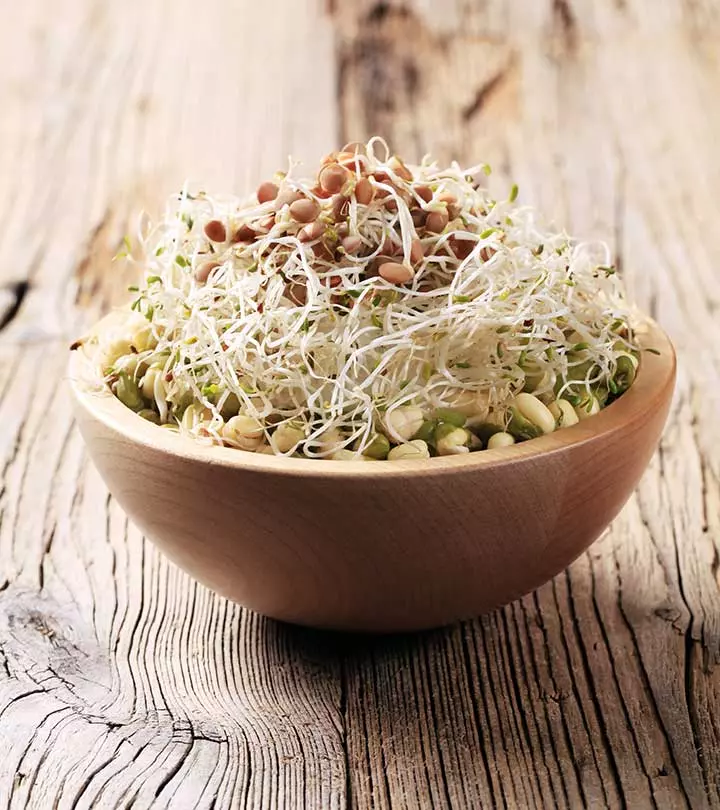
Image: Shutterstock
Sprouts are an inseparable part of a healthy and nutritious diet. But are you aware of the benefits of sprouts and how they can impact your overall health? For example, they cut down the risk of cancer and effectively manage blood sugar levels. They also improve digestion. This article discusses the many ways you can incorporate sprouts into your diet and how they can benefit you. Continue reading.
In This Article
What Are Sprouts?
As the name suggests, sprouts are germinated seeds that have sprouted to become very young plants. The process of germination begins when the seeds are soaked in water for many hours. When these soaked seeds are exposed to the right moisture and temperature (and allowed to grow for 2 to 7 days), the end product is a sprout.
There are different kinds of sprouts. The most common types of sprouts are as listed below:
- Bean and pea sprouts, including lentils, garbanzo beans, mung beans, soybeans, black and kidney beans, and green peas.
- Vegetable or leafy sprouts, including broccoli sprouts, radish sprouts, mustard greens, and fenugreek sprouts.
- Sprouted grains, including buckwheat, brown rice, quinoa, oat, and amaranth sprouts.
- Nut and seed sprouts, including radish seed, almond, alfalfa and pumpkin seeds, sesame and sunflower seed sprouts.
Almost all sprout varieties have similar benefits, but each variety is replete with certain specific nutrients.
While mung bean sprouts are good sources of protein, fiber, and vitamins A and C, alfalfa sprouts are great sources of vitamins A, B, C, E, and K (1),(2).
Lentil sprouts are amazing sources of protein too (one serving contains 26% of the daily value) (3). Brussels sprouts are among the richest sources of vitamins K1 and C, in addition to containing other minerals like potassium and other antioxidants (4).
No wonder sprouts are considered nutritional powerhouses! Let’s find out what they can do and how they can benefit you.
How Can Sprouts Benefit You?
1. Sprouts Help Control Blood Sugar
This is particularly true with broccoli sprouts, which are rich in sulforaphane. The compound was found to improve glucose control in patients with type 2 diabetes (5).
Broccoli sprouts were also found to improve insulin resistance in type 2 diabetes patients (6).
There are similar findings for Brussels sprouts as well. These sprouts contain alpha-lipoic acid, which is an antioxidant that can have beneficial effects on blood sugar and insulin (7).
2. Promote Digestion
Studies show that sprouted seeds have a higher fiber content, making them better for digestion. Germination of seeds can increase the content of both fiber and protein (8).
In one study, germination of wheat kernels for over 168 hours had shown a three-fold increase in soluble dietary fiber, which helps ease constipation (9).
In another study, the antioxidant properties of broccoli sprouts were found to offer gastrointestinal protection. The antioxidants can protect the human colon mucosa from the detrimental effects of oxidative stress (10).
The sulforaphane in broccoli sprouts might also protect the gastrointestinal tract by inducing a variety of antioxidant enzymes. The compound can be particularly helpful in treating oxidative stress caused by H. pylori infection and non-steroidal anti-inflammatory drugs (11).
3. Protect The Heart
Animal studies show how the intake of chickpea sprouts can lower bad cholesterol levels, thereby protecting the heart (12). Chickpea sprouts also contain phytoestrogens that improve fatty changes in the aorta – further contributing to cardiovascular health.
Broccoli sprouts also contain another antioxidant compound called glucoraphanin, which is known to improve heart health (13).
The sulforaphane in the sprouts promotes the health of the blood vessels – and this may help prevent atherosclerosis. Although we need more research on this, the findings have been encouraging (14).
4. Boost Immunity
Cruciferous veggies, like broccoli and Brussels sprouts, are rich in antioxidants and promote the immune system. These sprouts also contain choline, which keeps your cells functioning properly and promotes cell membrane signaling (15).
Brussels sprouts are also rich in vitamin C, a nutrient that plays a major role in disease prevention and cure (16).
5. Help Prevent Cancer
Lab and animal studies show that the sulforaphane in broccoli may help prevent cancer. Human studies have shown broccoli sprouts to eliminate cancer-causing chemicals. Though we need large-scale studies to arrive at a conclusion, this is an encouraging step (17).
Brussels sprouts, like most other cruciferous veggies, contain a sulfur-containing compound called glucosinolate. Cooking and digestion can break down glucosinolates into isothiocyanates, compounds that have anticancer properties (18).
Broccoli sprouts were also found to delay the onset of prostate cancer and even decrease its severity in affected individuals (19).
6. Can Enhance Vision Health
Brussels sprouts are great sources of lutein and zeaxanthin, two powerful antioxidants that boost vision health (20). Lutein and zeaxanthin have been linked to a reduced risk of age-related macular degeneration.
7. May Help Treat Anemia
As we saw, Brussels sprouts are rich in vitamin C. This nutrient can boost iron absorption and make your body use iron better. This, in turn, may help in the treatment of anemia (21).
In terms of appearance, sprouts may not look particularly grand. But most individuals who consume sprouts regularly can vouch for their nutritional strength. Let’s check out the nutritional profile of one common type of sprouts – Brussels sprouts.
What Is The Nutritional Profile Of Brussels Sprouts?
| Amount Per Selected Serving (1 cup = 88 grams) | ||
|---|---|---|
| Calorie Information | ||
| Amounts Per Selected Serving | %DV | |
| Calories | 38 (158 kJ) | 2% |
| From Carbohydrate | 29 (119 kJ) | |
| From Fat | 3.2 (9.2 kJ) | |
| From Protein | 7.3 (30.6 kJ) | |
| Carbohydrates | ||
| Amounts Per Selected Serving | %DV | |
| Total Carbohydrate | 7.9 g | 3% |
| Dietary Fiber | 3.3 g | 13% |
| Starch | 1.9 g | |
| Protein & Amino Acids | ||
| Amounts Per Selected Serving | %DV | |
| Protein | 3 g | 6% |
| Vitamins | ||
| Amounts Per Selected Serving | %DV | |
| Vitamin A | 664 IU | 13% |
| Vitamin C | 75 mg | 125% |
| Vitamin E (Alpha Tocopherol) | 0.8 mg | 4% |
| Vitamin K | 156 mcg | 195% |
| Thiamin | 0.1 mg | 8% |
| Riboflavin | 0.1 mg | 5% |
| Niacin | 0.7 mg | 3% |
| Vitamin B6 | 0.2 mg | 10% |
| Folate | 54 mcg | 13% |
| Pantothenic Acid | 0.3 mg | 3% |
| Choline | 17 mg | |
| Betaine | 0.7 mg | |
| Minerals | ||
| Amounts Per Selected Serving | %DV | |
| Calcium | 37 mg | 4% |
| Iron | 2 mg | 7% |
| Magnesium | 20 mg | 5% |
| Phosphorus | 61 mg | 6% |
| Potassium | 342 mg | 10% |
| Sodium | 22 mg | 1% |
| Zinc | 0.4 mg | 2% |
| Copper | 0.1 mg | 3% |
| Manganese | 0.3 mg | 15% |
| Selenium | 1.4 mcg | 2% |
Source: USDA National Nutrient Database, Brussels sprouts, raw
That’s an impressive nutritional profile! But then, sprouts also have a common (and potentially harmful) problem that we need to address.
A Note On Raw Sprouts And Harmful Bacteria
It is the risk of food poisoning. Sprouts that are consumed raw (or that only slightly cooked) add to the risk. This is because sprouts are grown in warm and humid conditions where harmful bacteria (like E. coli and Salmonella) also thrive.
In the last two decades, the FDA had linked 48 outbreaks of foodborne illness to consumption of raw or slightly cooked sprouts (22). The symptoms in this case include diarrhea, stomach cramps, and vomiting. They appear 12 to 72 hours after eating sprouts (23).
Though these symptoms are not life-threatening, children, pregnant women, and the elderly must exercise extra caution. But worry not – there is a way around this. You can reduce the risk of contamination by:
- Buying chilled sprouts. Only buy fresh sprouts that have been refrigerated.
- Storing them in the refrigerator. At home, keep your sprouts at temperatures under 48oF (8oC).
- Checking their appearance. Never purchase sprouts with a slimy appearance (or a strong smell).
- Washing your hands. If you are handling raw sprouts, always ensure you wash your hands first.
These tips should help. Also, you don’t always have to buy sprouts from the market. You can make them at home.
How To Make Sprouts At Home
Sprouts only take a few days to, well, sprout. You will need the following:
- Half gallon size mason jar
- A piece of cheesecloth and a rubber band
- A bowl to help the jar stand upside down, at a right angle
- Organic sprouting seeds (ensure they are specifically labeled)
What You Need To Do
- Wash your hands thoroughly. Also, ensure all the equipment is clean and sterile.
- Pour the seeds into the jar. Depending on the seed size, you can take a teaspoon or ¼ cup.
- Cover the seeds with a cup of filtered water and put the cheesecloth over the jar.
- Allow the seeds to soak overnight.
- Strain the water in the morning using a fine strainer.
- Rinse the seeds with filtered water and drain again.
- Place the jar in the bowl at a slight angle (the bottom of the jar should be on a higher level). This drains off the excess water.
- Keep rinsing the sprouts several times a day using filtered water. Once done, keep returning the jar to the tilted position.
- Most sprouts must harvest within 2 to 7 days.
- Once they sprout, rinse them with cool, filtered water and store in a covered container in the refrigerator – for up to a week.
That was simple, wasn’t it? But there is something else about sprouts that we need to know.
Do Sprouts Have Any Side Effects?
The only known side effect of sprouts is the possibility of food poisoning. Ensure you cook your sprouts properly before eating them.
The benefits of sprouts are numerous. They can be prepared with beans, peas, or leafy vegetables like broccoli, radish, and mustard greens. Grains like buckwheat, brown rice, and oats can also be used for preparing sprouts. They can effectively manage blood sugar levels, boost immunity and digestion, aid heart health, and reduce cancer risk. However, raw sprouts may cause food poisoning due to the risk of E. coli or Salmonella contamination. Hence, cooking them properly before consuming them can reduce the risk of food poising.
Do you eat sprouts? How often? Do let us know by leaving a comment in the box below.
Frequently Asked Questions
How to include sprouts in your diet?
You can sprinkle sprouts on your breakfast omelet. You can also throw an ounce of sprouts in the blender while preparing your nutritious evening smoothie.
Why should we boil sprouts?
Boiling sprouts kills the harmful bacteria and prevents possible food poisoning.
Can you take sprouts on an empty stomach?
Yes, you can eat sprouts in the morning, on an empty stomach.
References
- “Mung beans, mature seeds, sprouted…” Food Data Central, National Nutrient Database for Standard Reference Legacy Release, Agricultural Research Service, United States Department of Agriculture.
- “Alfalfa seeds, sprouted…” Food Data Central, National Nutrient Database for Standard Reference Legacy Release, Agricultural Research Service, United States Department of Agriculture.
- “Lentils, sprouted, raw…” Food Data Central, National Nutrient Database for Standard Reference Legacy Release, Agricultural Research Service, United States Department of Agriculture.
- “Brussels sprouts, frozen…” Food Data Central, National Nutrient Database for Standard Reference Legacy Release, Agricultural Research Service, United States Department of Agriculture.
- “Sulforaphane reduces hepatic glucose…” Science Translational Medicine.
- “Effect of broccoli sprouts on insulin resistance…” International Journal of Food Sciences and Nutrition, US National Library of Medicine.
- “Diabetes and alpha lipoic acid” Frontiers in Pharmacology, US National Library of Medicine.
- “Effect of germination on total dietary fibre and…” International Food Research Journal.
- “Changes of folates, dietary fiber, and proteins in…” Journal of Agriculture and Food Chemistry, US National Library of Medicine.
- “Antioxidant capacity of broccoli sprouts subjected…” Journal of the Science of Food and Agriculture, US National Library of Medicine.
- “Role of sulforaphane in protection of gastrointestinal…” Current Pharmaceutical Design, US National Library of Medicine.
- “Antihyperlipidemic activity of chickpea sprouts…” Journal of Ayurveda and Integrative Medicine, US National Library of Medicine.
- “Diet rich in high glucoraphanin broccoli reduces…” Molecular Nutrition & Food Research, US National Library of Medicine.
- “The influence of sulforaphane on…” EPMA Journal, US National Library of Medicine.
- “Choline” National Institutes of Health.
- “Vitamin C in disease prevention and cure…” Indian Journal of Clinical Biochemistry, US National Library of Medicine.
- “Broccoli sprouts” Memorial Sloan Kettering Cancer Center.
- “Brussels sprouts” Harvard School of Public Health.
- “Broccoli sprouts delay prostate cancer formation…” Current Developments in Nutrition, US National Library of Medicine.
- “Lutein and zeaxanthin – food sources, bioavailability…” Nutrients, US National Library of Medicine.
- “Iron” Central District Health Department.
- “20 years of sprout-related outbreaks…” Oxford Academic Journals.
- “Foodborne illnesses: what you need to know” US Food & Drug Administration.
Read full bio of Madhu Sharma
Read full bio of Ravi Teja Tadimalla



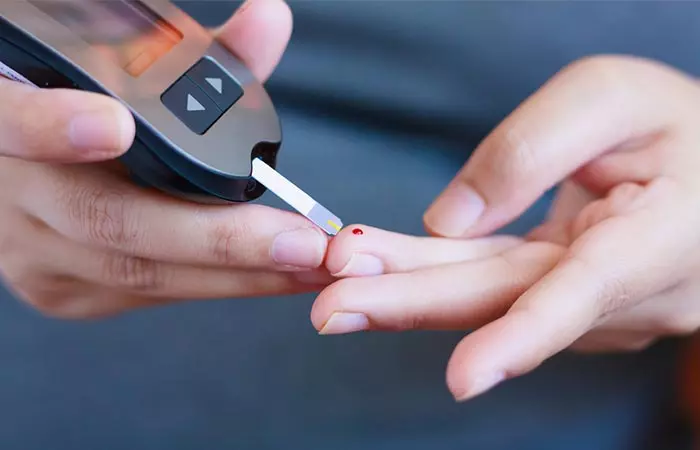




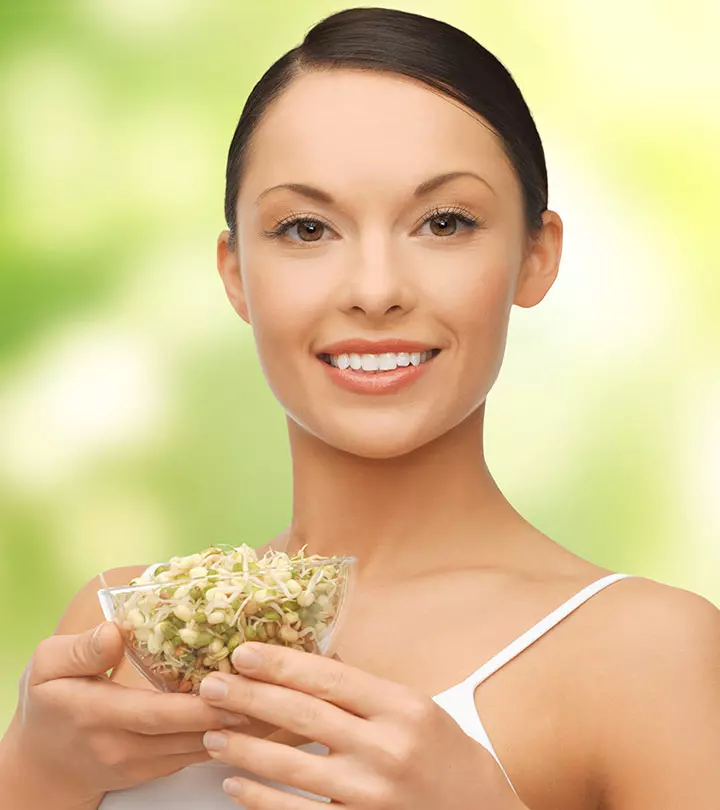
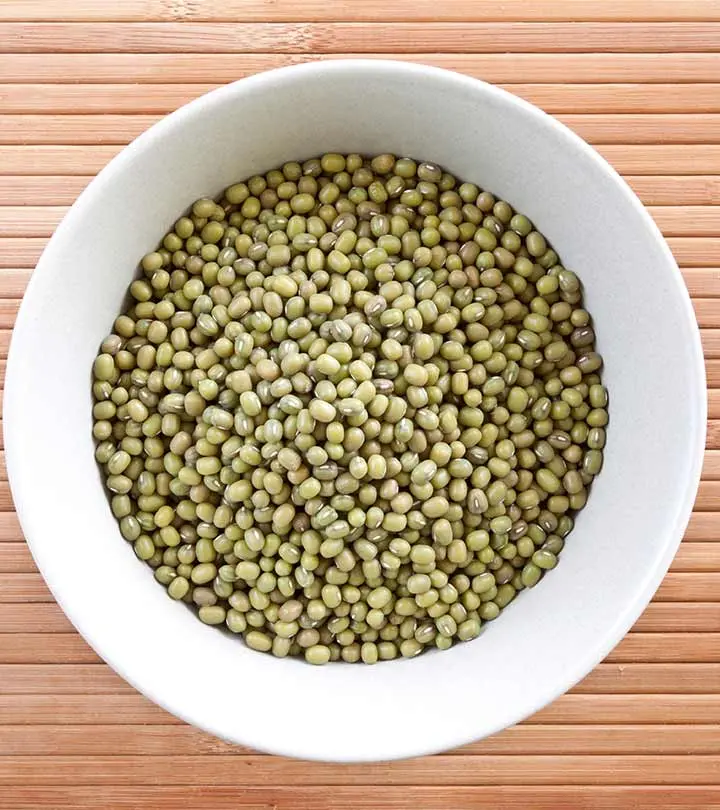
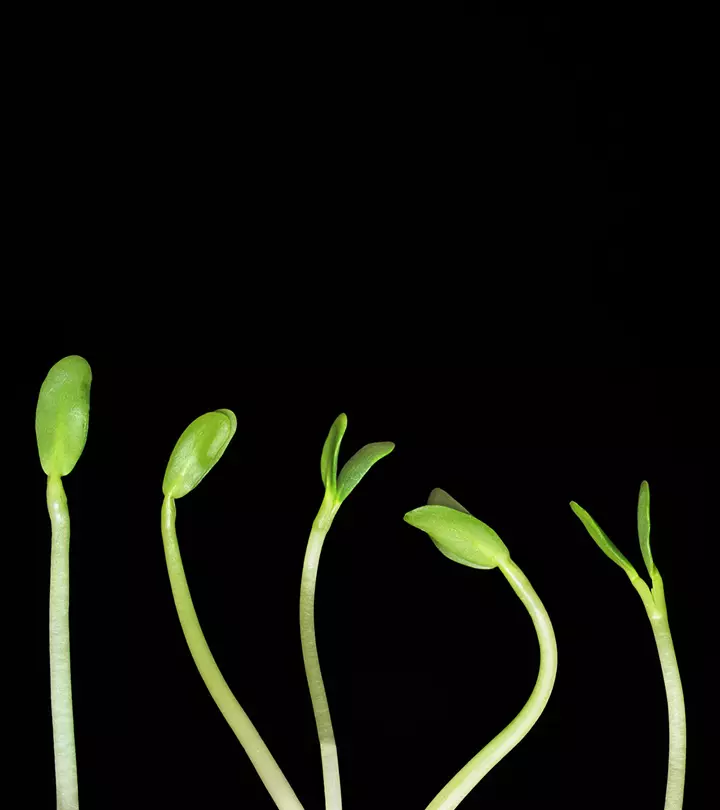

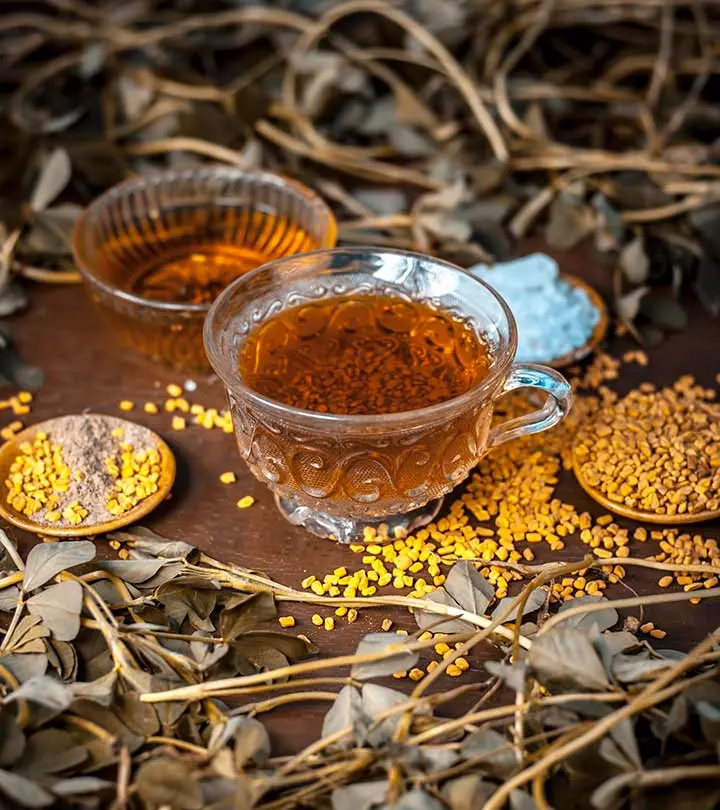
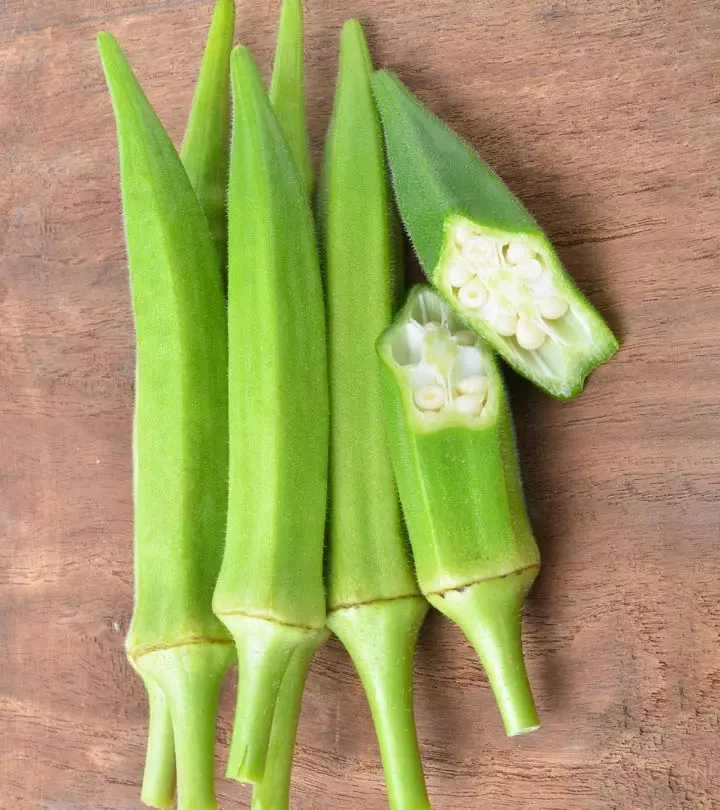

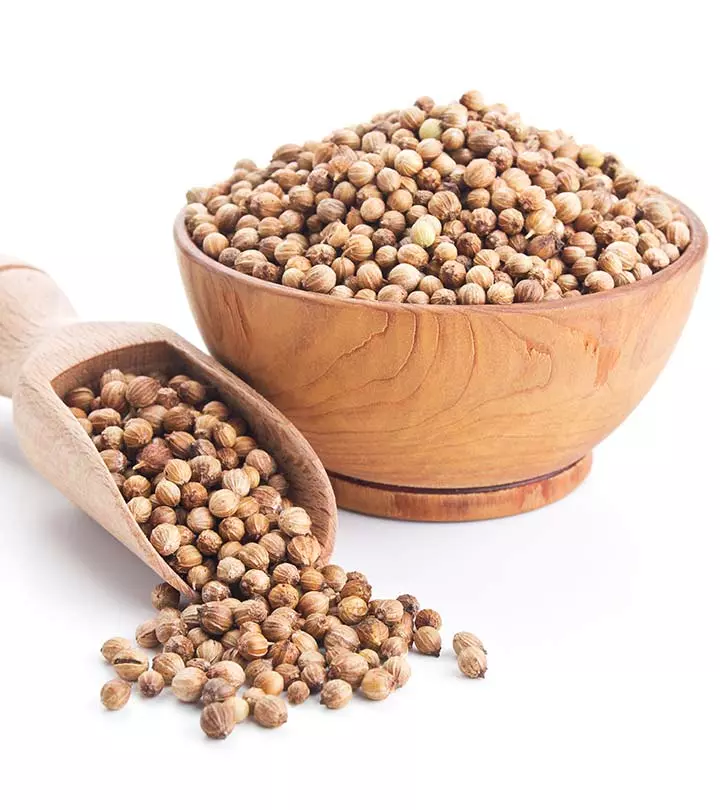
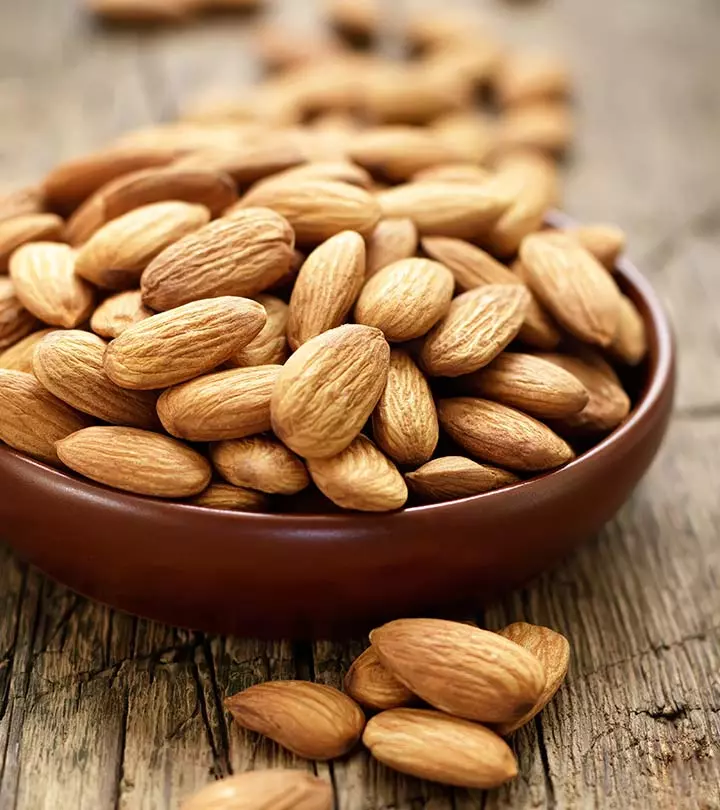
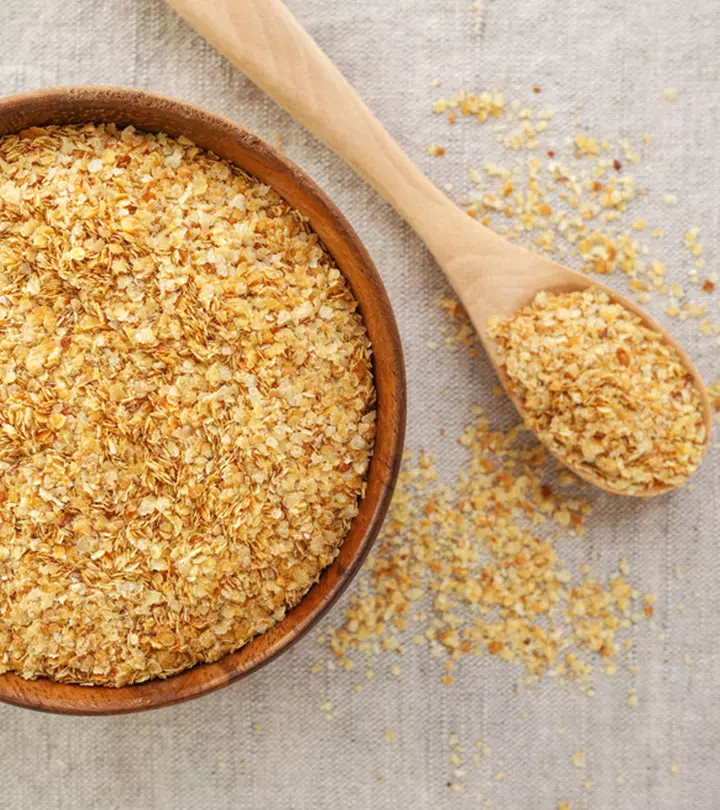











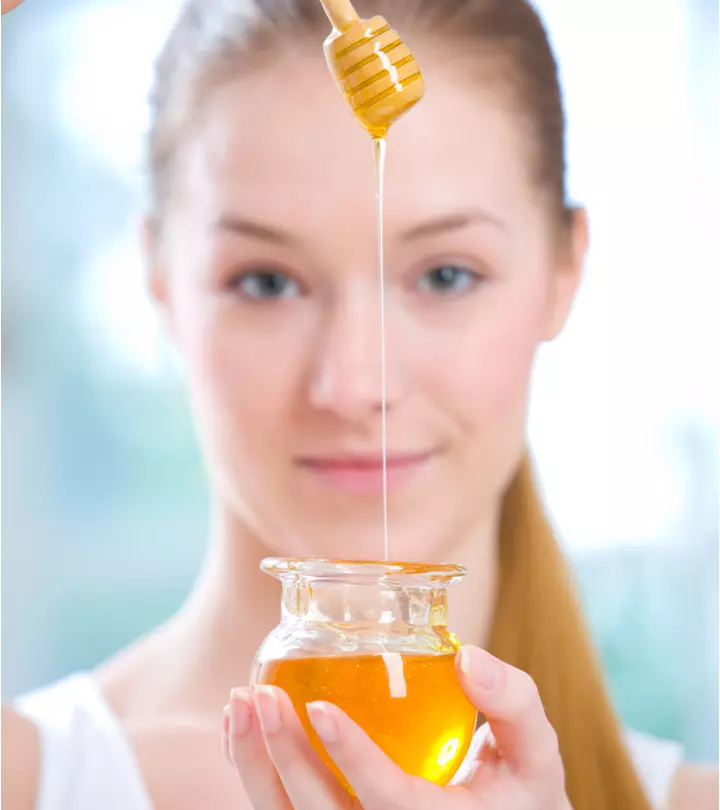
Community Experiences
Join the conversation and become a part of our empowering community! Share your stories, experiences, and insights to connect with other beauty, lifestyle, and health enthusiasts.